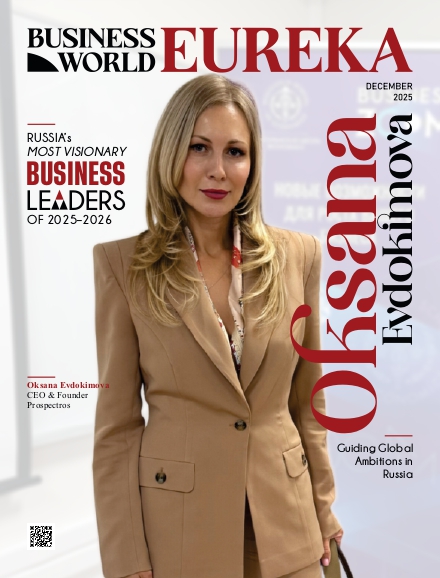Serenade Gamil The Voice of Cultural Connection

Using art, culture, and dialogue to strengthen ties between nations and foster mutual understanding, while inspiring and empowering the next generation of women leaders!
Music and diplomacy may seem worlds apart, but for Serenade Gamil, they have always spoken the same language. Born into a family where creativity and intellect walked hand in hand, she learned early that art could form minds and diplomacy could shape nations. Her life, in many ways, has been a composition; each chapter blending melody, meaning, and purpose.
Her father, the renowned Egyptian music composer Soliman Gamil, was a national and international figure whose works celebrated Egypt’s cultural identity. He was not only a composer but also a respected art critic for Al-Ahram newspaper and one of the key figures behind Egypt’s cultural policy in the 1950s and 60s.
Her mother, Aziza Gamil, a gifted fashion designer and painter, created elegant pieces for Egyptian royalty and the aristocracy, blending modern expression with cultural heritage. Together, they built a home where art was not a subject, but a way of living. For Serenade, their legacy became more than heritage; it became a compass guiding her own journey, inspired by Soliman Gamil’s composition for Piano “Egyptian Mawal.”
Read on to discover how she turned that legacy into a life dedicated to harmony, culture, and connection.
Early Lessons in Vision and Language
Serenade recalls her early years accompanying her father to Brussels, where he worked as a diplomat. Watching him balance artistic passion with diplomatic purpose left a lasting impression. “At sixteen, I realised how important diplomatic work is, it builds bridges between civilisations and opens dialogue between cultures,” she reflects. Those formative years, surrounded by languages, music, and international exposure, cultivated her vision for life.
Education played a central role in her journey.
While studying in Brussels, she learned French and German alongside her English and Arabic fluency. Music was constant, almost instinctive. She studied piano and theory through the Trinity College of London, deepening her appreciation for how sound can transcend borders.
Inspiration from Family Legacy
Her family continued to influence her direction. Her aunt, a member of the Egyptian Parliament and a celebrated singer, was known for her work in promoting labour rights and social welfare. Through her, Serenade saw how public service and compassion could coexist. It was a powerful lesson, one that would later define her approach as a diplomat and leader.
Her father’s life also offered a blueprint. When he served as a diplomat in Brussels, he composed Salutation Egyptienne aux Peuple Belge, a musical piece for piano that he presented to the King of Belgium in 1982. The piece symbolised friendship between nations and earned him the title of Ordre de Chevalier. Serenade remembers that moment as proof that diplomacy, when guided by art and sincerity, can touch hearts and transcend politics.
A Diplomatic Journey Rooted in Culture
Years later, she carried that same spirit into her own diplomatic mission. When she was appointed Ambassador of Egypt to Armenia, she presented one of her father’s compositions, Egyptian Mawal, to the President of Armenia, Vahagn Khachaturyan, himself an accomplished musician. That gesture captured her belief that diplomacy, at its best, is a dialogue of souls as much as a negotiation of policies.
Throughout her career, Serenade focused on cultural diplomacy; the idea that culture is one of the most powerful tools for understanding between nations. During her time in Paris from 1996 to 2000, she served as Second Secretary at the Egyptian Embassy, managing political and cultural affairs. She was closely involved with UNESCO projects and played a key role in organising the Egypt-France Cultural Year, which celebrated the rich connection between the two nations. One of her most memorable experiences was helping coordinate the Millennium Concert by Jean-Michel Jarre at the Pyramids in December 1999, marking the beginning of the 21st century with art and unity.
Later, her posting in Tunis added another layer of depth to her understanding of regional cooperation and diplomacy in the Mediterranean. “Every mission taught me something new about people, communication, and creativity,” she says. “Diplomacy is not just about negotiation, it is about listening, observing, and finding harmony in diversity.”
After her mission in Tunis, Serenade went on to hold several high-level diplomatic roles that reflected both her expertise and her pioneering presence as a woman diplomat. In Vienna, she served as the Alternate Permanent Representative of Egypt to the United Nations Industrial Development Organization (UNIDO) and the International Atomic Energy Agency (IAEA). Mastering the art of multilateral diplomacy, she was elected by acclamation to be the Vice President for Africa of the Conference General of UNIDO in 2009.
She later worked at the Ministry of Foreign Affairs in Cairo as the National Correspondent to the International Organization of La Francophonie, before being appointed Consul General of Egypt in Paris. Due to her tireless efforts, she made a significant contribution to the Egyptian government by acquiring, on its behalf, the building for the General Consulate of Egypt in Paris, where cultural diplomacy once again played a central role in strengthening the relationship between Egypt and France.
Her journey continued as she took on the position of Deputy Assistant Minister of Foreign Affairs for Political International Relations in the Multilateral and International Organization Department in Cairo, before being appointed Ambassador of Egypt to Armenia and Non-Resident Ambassador to Georgia, a role she held until September 2025.
A Legacy of Global Diplomacy
With 34 years of experience in the field of diplomacy, Ambassador Serenade Gamil has held important positions in many countries, representing Egypt across different continents with grace and purpose. Since 2022, she has served as the Extraordinary and Plenipotentiary Ambassador of the Arab Republic of Egypt in Armenia and Georgia, a role that embodies her lifelong mission of fostering dialogue and mutual respect between nations.
Under her leadership, the past years have marked new milestones in Armenian–Egyptian relations. In 2023, President Abdel Fattah El-Sisi’s historic visit to Armenia, the first ever, stood as a symbol of strengthened ties and deeper cooperation, a moment made possible through her efforts. Over two years, bilateral relationships have flourished across multiple sectors, including education, culture, and tourism. Egypt has become a preferred destination for Armenian travelers, while many young Armenians have begun pursuing their studies in Egypt, enriching the cultural exchange between the two countries.
At the core of these accomplishments lies her love for Egypt’s heritage and her dedication to the art of diplomacy. Her vision goes beyond policy; it is about nurturing understanding and friendship between people. For her contributions to building and sustaining these bridges, Ambassador Serenade Gamil was honored in Armenia with the title Woman of Gold 2024 in the category of Female Leadership in Diplomacy for Establishing Strong Relations.
Breaking Traditions and Defining Success
Serenade describes her professional path as one of courage and conviction. As a young woman diplomat, she broke convention by choosing to serve abroad, a decision that was not common for women at the time. She wanted to prove that women could represent their countries with the same strength, intellect, and grace as any of their peers. “I always defined success as achieving my work with art,” she says. “Discipline was the key. Art gives diplomacy its soul, and discipline gives it direction.”
Her philosophy was formed by both faith 34 and wisdom. A Sufi master once told her, “In every gain, there is a loss, and in every loss, there is a gain.” These words stayed with her. She believes challenges and opportunities are two sides of the same coin, and that progress comes from embracing both with openness and serenity.
Women, Leadership, and Harmony
She also learned that societal expectations can weigh heavily, especially on women who choose leadership. Her advice to young women is simple yet powerful: “Do not compare yourself with others. Follow your own inner voice and use your competence to trace your path. Once you do that, you will find harmony between who you are and what you want to achieve.”
Serenade deeply values the role of Egyptian women in building a strong, balanced society. She believes that when women contribute to national progress, they become anchors of stability and development. She also appreciates the leadership of President Abdel Fattah El-Sisi, who has supported women’s empowerment and expanded their participation in Egypt’s political and economic spheres. “What we need is focus, structure, and discipline to achieve our goals,” she says with calm conviction.
Despite facing stereotypes about women in positions of influence, she has always chosen to respond with composure. “I hear it as if it were a joke,” she says with a smile. “Instead of reacting, I focus on the work. I lead with empathy, give my team confidence, and remind them that every person is a vital piece of the bigger picture. Success is never individual; it is always shared.”
Mentorship and a Vision for the Future
Mentorship has become one of her most meaningful contributions. She teaches at the Diplomatic Institute of the Ministry of Foreign Affairs in Egypt, as well as at leadership and diplomatic schools in Armenia. Her sessions with young women, especially those pursuing diplomacy, are filled with practical wisdom and personal stories. “It is important to share experience and keep dialogue alive,” she says. “When we pass knowledge forward, we build continuity for the next generation.”
Projecting forward, Serenade feels confident that women’s leadership in Egypt will continue to rise. She envisions 2030 as a time when women’s influence will expand across all sectors, social, political, and economic. “I see women leading with wisdom, creativity, and courage,” she says. “And I believe it is our duty to keep working for a more prosperous and harmonious society.”
Her story teaches us that diplomacy, when infused with art and compassion, becomes more than a profession, it becomes a calling. Serenade Gamil has shown that strength can be graceful, and leadership can be lyrical. Her life persists to echo the lessons of her parents: that creativity, conscience, and culture together can build bridges stronger than any treaty.
Latest Editions
-
 World's Most Inspiring Keynote Speakers to Watch in 2025–2602 Jan 2026 magazines
World's Most Inspiring Keynote Speakers to Watch in 2025–2602 Jan 2026 magazines -
 Russia’s Most Visionary Business Leaders of 2025–202619 Dec 2025 magazines
Russia’s Most Visionary Business Leaders of 2025–202619 Dec 2025 magazines -
 Sheroes: UK's Most Visionary Leader Making Their Mark in the Global Education Landscape, 2025–2602 Dec 2025 magazines
Sheroes: UK's Most Visionary Leader Making Their Mark in the Global Education Landscape, 2025–2602 Dec 2025 magazines -
 Europe’s Most Influential Business Leaders to Watch in 2025-2630 Nov 2025 magazines
Europe’s Most Influential Business Leaders to Watch in 2025-2630 Nov 2025 magazines -
 UK's Most Influential Personalities to Follow in 202504 Nov 2025 magazines
UK's Most Influential Personalities to Follow in 202504 Nov 2025 magazines

